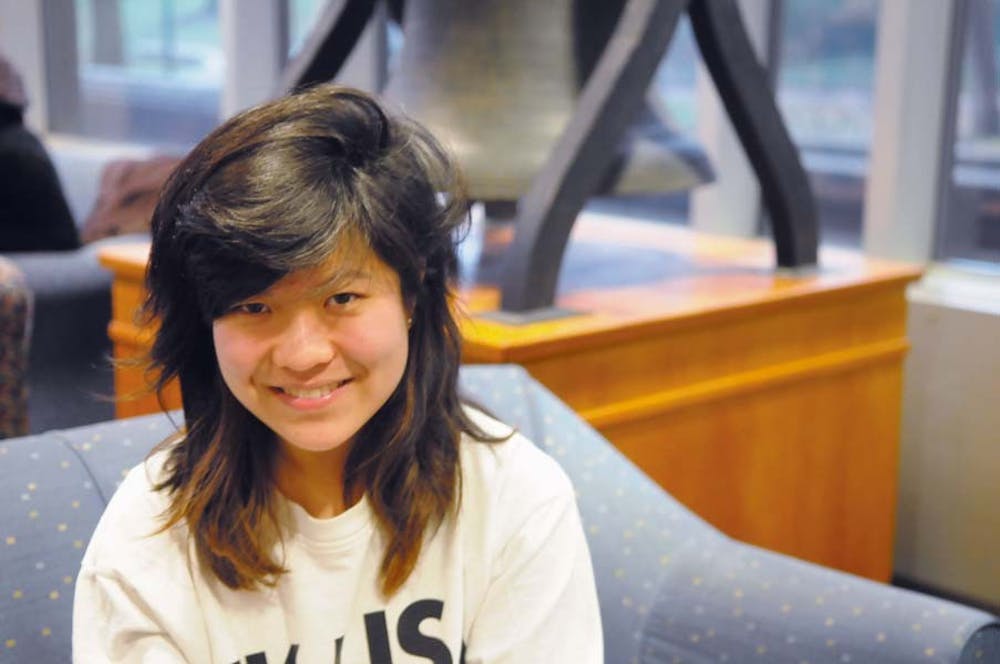
Last Wednesday, the United Minorities Council — the 34 year-old coalition of 22 Penn student minority organizations — elected College sophomore Joyce Kim as its new chair. Kim was previously the UMC’s financial chair, and she plans to use that experience moving forward.
The Daily Pennsylvanian sat down with Kim to discuss her plans for the future of the UMC.
The Daily Pennsylvanian: What is the UMC’s central role on campus?
Joyce Kim: We have a really long and rich history. This is the UMC’s 35th year.
I think the purpose of the UMC now is to really focus on interculturalism and bridge communities on campus. We’re the intermediary between our constituent groups and administration. And we also focus on social justice.
DP: What are your main goals for the UMC and its constituent groups this year?
JK: I’d really like interculturalism to be a concept that touches across campus not just within 5B groups [Penn’s five main cultural coalitions]. Something I’d like to see is more interaction with the UA. I’d also like to see stronger internal structure and more civic engagement.
DP: Why did you run for chair of UMC?
JK: I’m actually on the executive board of the Undergraduate Assembly as secretary. Just being there observing steering meetings and knowing the inner workings of the UA is an asset to the table, especially in terms of my overall vision for the UMC. I wholeheartedly believe in interculturalism. I think the UMC is an awesome organization. I think the social justice and interculturalism aspects are really what spoke to me.
DP: What are you hoping that the UMC will do differently in the future?
JK: I would like for there to be more cohesion among our constituent groups, more continuity between boards and more transparency. One of my goals this year is to increase awareness of what we do across campus as well as have stronger relationships with 5B groups [and] others.
DP: What are some of the main challenges that the UMC faces? How do you plan to combat them?
JK: A main challenge we have is that amongst the 5B organizations, constituents in those groups know what we do, but beyond that people don’t really know the UMC. I would really like students to be more aware of who we are and what we do. And I think one way to do that is to strengthen bonds across groups on campus, whether it’s through UA Steering or just getting to know people.
DP: How will your past experience as financial chair affect what you do as chair this semester?
JK: As financial chair, you are a representative on two major funding sources: Tangible Change and the Intercultural Fund. Being in charge of internal [finances] gives you an in-depth look at what students are spending money on, so I do have some insight into what kind of programming our constituent groups want to be involved in.
Furthermore, by sitting on T-Change and ICF, I’ve established working relationships with representatives of groups across campus, and I also have a better idea of the types of programming that students in groups across campus are geared towards. By having experience knowing what type of programming groups want to do, this will facilitate collaboration.
DP: What are you most looking forward to in your new position?
JK: I’m really looking forward to getting to know the constituent groups better. I’m excited to work with the Greenfield Intercultural Center. I’m so pumped for this new board, and I’m excited to see where we can work with the UA and other groups across campus to further our mission.
The Daily Pennsylvanian is an independent, student-run newspaper. Please consider making a donation to support the coverage that shapes the University. Your generosity ensures a future of strong journalism at Penn.
DonatePlease note All comments are eligible for publication in The Daily Pennsylvanian.




